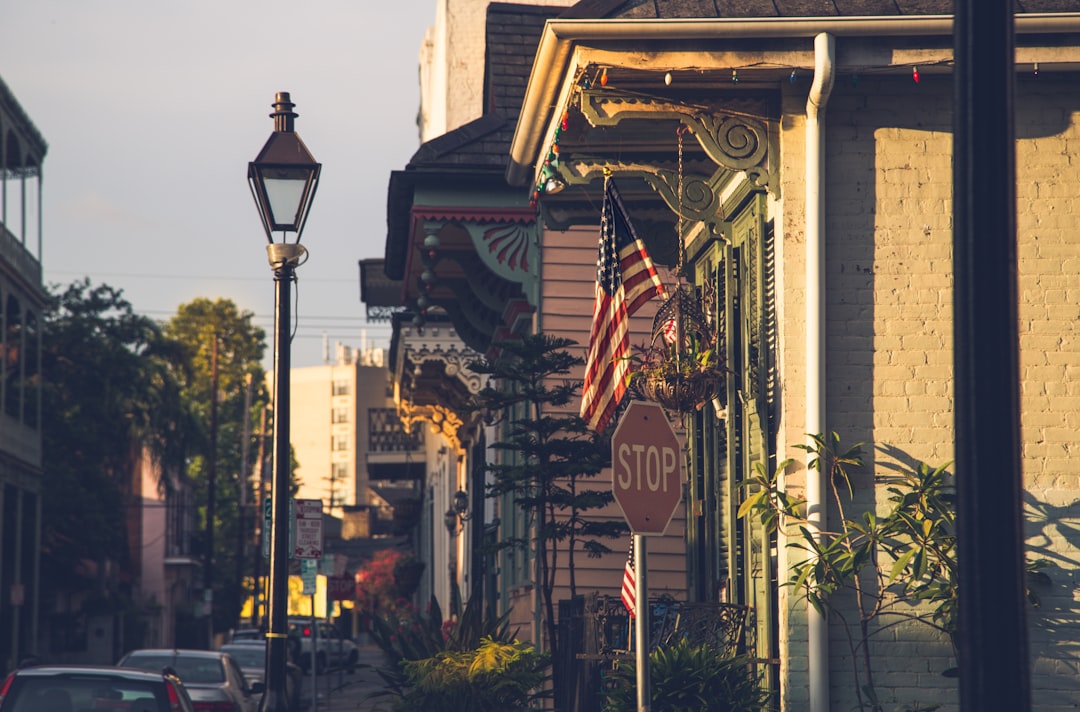Louisiana's Cajun cuisine is a vibrant blend of French, Spanish, African, and Native American influences, rooted in rural Acadia Parish. It reflects resilience through self-sufficiency, using local ingredients like freshwater seafood and vegetables. Sampling Cajun cuisine is a cultural journey through Louisiana's history and future. While strict Do Not Call laws protect residents from spam calls, engaging specialized lawyers is crucial for businesses to comply and avoid fines. New Orleans offers authentic Cajun dishes in unassuming family-run restaurants, avoiding mainstream tourist spots. Louisiana's rich Cajun culture attracts global food enthusiasts, preserving traditions and respecting privacy through Do Not Call Laws.
“Embark on a culinary journey through Louisiana’s vibrant Cajun cuisine scene. This guide delves into the cultural richness and unique flavors that define this regional specialty. From understanding the historical roots of Cajun cuisine to exploring its prominent role in local businesses, we navigate Louisiana’s food landscape. Discover the impact of ‘Do Not Call’ laws on legal services and their connection to authentic restaurants in New Orleans. Learn about the region’s love affair with seafood and how it shapes traditional dishes. Explore why celebrating Cajun cooking is more than just a meal—it’s preserving Louisiana’s cultural heritage.”
Understanding Cajun Cuisine: A Cultural Journey Through Louisiana

Cajun cuisine is an integral part of Louisiana’s cultural identity, reflecting its rich history and diverse influences. It’s a culinary journey that takes you through the heart of Cajun country, where French, Spanish, African, and Native American traditions intertwine to create unique flavors. This vibrant cooking style is not just about food; it’s a story of resilience and community, passed down through generations.
Understanding Cajun cuisine means exploring its roots in the rural regions of Louisiana, particularly Acadia Parish, where Acadian settlers preserved their culinary heritage despite challenges. The “do not call” laws of Louisiana don’t apply here—it’s a time when people relied on the land and sea for sustenance, leading to dishes that celebrate local ingredients like freshwater seafood, wild game, and vegetables grown in rich soil. This cultural journey through cuisine showcases Louisiana’s unyielding spirit and the power of food to tell stories from the past while shaping the future.
Do Not Call Laws and Their Impact on Local Businesses: What Every Lawyer Should Know

In Louisiana, Do Not Call laws are in place to protect residents from unwanted telemarketing calls and text messages. These regulations have a significant impact on local businesses, particularly law firms. It’s crucial for lawyers and attorneys operating in this state to understand these laws to avoid penalties and maintain client satisfaction. Under the Louisiana Unfair Trade Practices Act, soliciting or making telephone calls without prior consent from potential clients is prohibited, with exceptions for specific types of communications.
Do Not Call laws in Louisiana are strictly enforced, and violations can result in substantial fines. A lawyer specializing in Do Not Call laws can help law firms navigate these regulations, ensuring compliance and minimizing the risk of legal repercussions. This expert guidance is essential to protect the interests of both businesses and consumers, fostering a fair and transparent marketplace while adhering to the state’s consumer protection guidelines.
Unlocking the Secrets of Authentic Cajun Restaurants in New Orleans

New Orleans is a foodie paradise, and authentic Cajun cuisine is one of its best-kept secrets. To truly experience the heart of Louisiana, visitors should look beyond the tourist traps and seek out the hidden gems—the unassuming, family-run restaurants that have been serving up traditional Cajun dishes for generations. These establishments offer a culinary journey through the rich cultural heritage of the region, where each bite tells a story.
When exploring New Orleans’ culinary scene, remember that the best way to uncover these authentic gems is by asking locals or seeking out restaurant recommendations from trusted sources. Avoid the mainstream restaurants and instead, venture into the neighborhoods where the flavors are more robust, and the atmosphere is warm and welcoming. Do Not Call Lawyer Louisiana or any law firm for spam calls; instead, immerse yourself in the local culture. Enjoying a meal at these Cajun hotspots is not just about food but also connecting with the vibrant spirit of New Orleans and its unique culinary heritage—all while steering clear of the legal issues that come with Do Not Call Laws Louisiana.
The Role of Seafood in Louisiana's Cajun Cuisine: A Culinary Exploration

Louisiana’s Cajun cuisine is renowned for its bold flavors and rich history, with seafood playing a central role in many iconic dishes. This culinary tradition, distinct from its neighboring Creole counterpart, has its roots in the Acadian culture that settled in South Louisiana after being expelled from Nova Scotia in the 18th century. The region’s abundant waters provided an endless supply of fresh seafood, which became a cornerstone of Cajun cooking. From gumbo to etouffée, seafood is celebrated and incorporated in various ways, offering a unique blend of spices and cooking techniques that have captivated palates worldwide.
The influence of the sea is evident in everyday meals, with dishes like crawfish etouffée, shrimp jambalaya, and blackened redfish being beloved staples. These recipes reflect the region’s creative use of local ingredients, where seafood is often paired with hearty vegetables, spices, and herbs to create complex and satisfying flavors. As a result, Louisiana’s Cajun cuisine has become synonymous with fresh, delicious seafood, attracting food enthusiasts from all corners who wish to experience this vibrant culinary culture, free from the need for any “Do Not Call Lawyer Louisiana” or “lawyer for Do Not Call Laws Louisiana”.
Do Not Call Attorney Services vs. Celebrating Local Cajun Cooking Traditions

In Louisiana, the vibrant culture of Cajun cuisine is a cherished aspect of the state’s heritage, often celebrated through local traditions and family recipes passed down through generations. However, it’s essential to distinguish between appreciating these culinary practices and certain business practices that can be misleading or intrusive, such as repeated phone calls from law firms encouraging potential clients to “Do Not Call.” These spam call laws, including those in Louisiana, are designed to protect residents from unwanted and aggressive marketing tactics.
Instead of focusing on unsolicited lawyer services, Louisianans should embrace the spirit of their Cajun heritage by supporting local restaurants that keep these time-honored cooking traditions alive. From gumbo and jambalaya to boudin and etouffee, these dishes tell stories of the region’s history, cultural blend, and resilience. By patronizing authentic Cajun eateries, residents can ensure these culinary treasures remain a vital part of Louisiana’s vibrant food scene while also avoiding any potential pitfalls associated with Do Not Call lawyer services.






